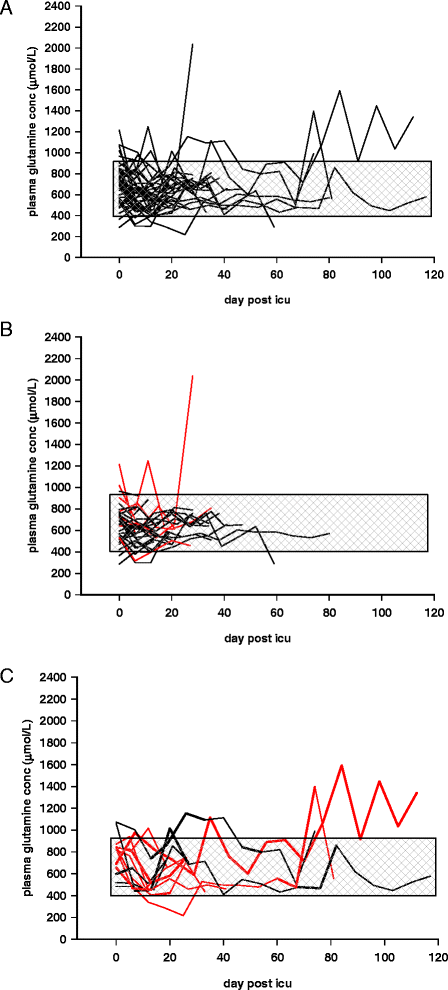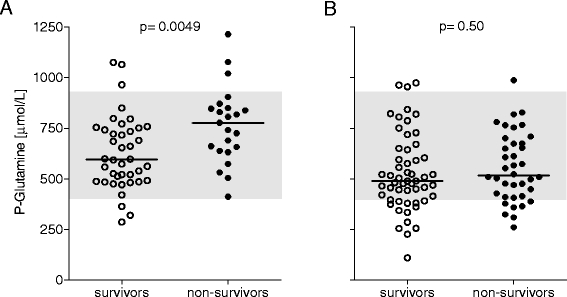Plasma glutamine concentration after intensive care unit discharge: an observational study
- PMID: 25488701
- PMCID: PMC4300616
- DOI: 10.1186/s13054-014-0677-8
Plasma glutamine concentration after intensive care unit discharge: an observational study
Abstract
Introduction: Low plasma glutamine concentration at ICU admission is associated with unfavorable outcomes. The prediction of plasma glutamine concentration after ICU discharge on outcomes has not been characterized. In the recent Scandinavian Glutamine Trial, a survival advantage was seen with glutamine supplementation as long as patients stayed in the ICU. It was therefore hypothesized that the glutamine level may drop at ICU discharge, indicative of a sustained glutamine deficiency, which may be related to outcome.
Methods: Fully fed ICU patients intravenously supplemented with glutamine for >3 days were studied at ICU discharge and post ICU. In study A, plasma glutamine level was followed every 5 to 7 days post ICU of the remaining hospital stay and compared to the level on the day of ICU discharge (n=63). In study B, plasma glutamine level 24 to 72 hours after ICU discharge was related to 12-month all-cause mortality (n=100).
Results: Post-ICU plasma glutamine levels were within normal range and were not found to be predictive for mortality outcome. Plasma glutamine level at discharge, on the other hand, was within normal limits but higher in nonsurvivors. In addition, it was adding prediction value to discharge SOFA scores for post-ICU mortality.
Conclusions: Post-ICU glutamine levels are not indicative of glutamine depletion. The relation between plasma glutamine concentration and glutamine availability during critical illness is not well understood, and needs to be studied further to define the possible role for glutamine supplementation.
Figures



References
-
- Gamrin L, Essen P, Forsberg AM, Hultman E, Wernerman J. A descriptive study of skeletal muscle metabolism in critically ill patients: free amino acids, energy-rich phosphates, protein, nucleic acids, fat, water, and electrolytes. Crit Care Med. 1996;24:575–583. doi: 10.1097/00003246-199604000-00005. - DOI - PubMed
Publication types
MeSH terms
Substances
LinkOut - more resources
Full Text Sources
Other Literature Sources

